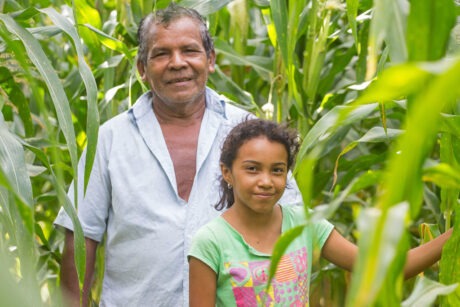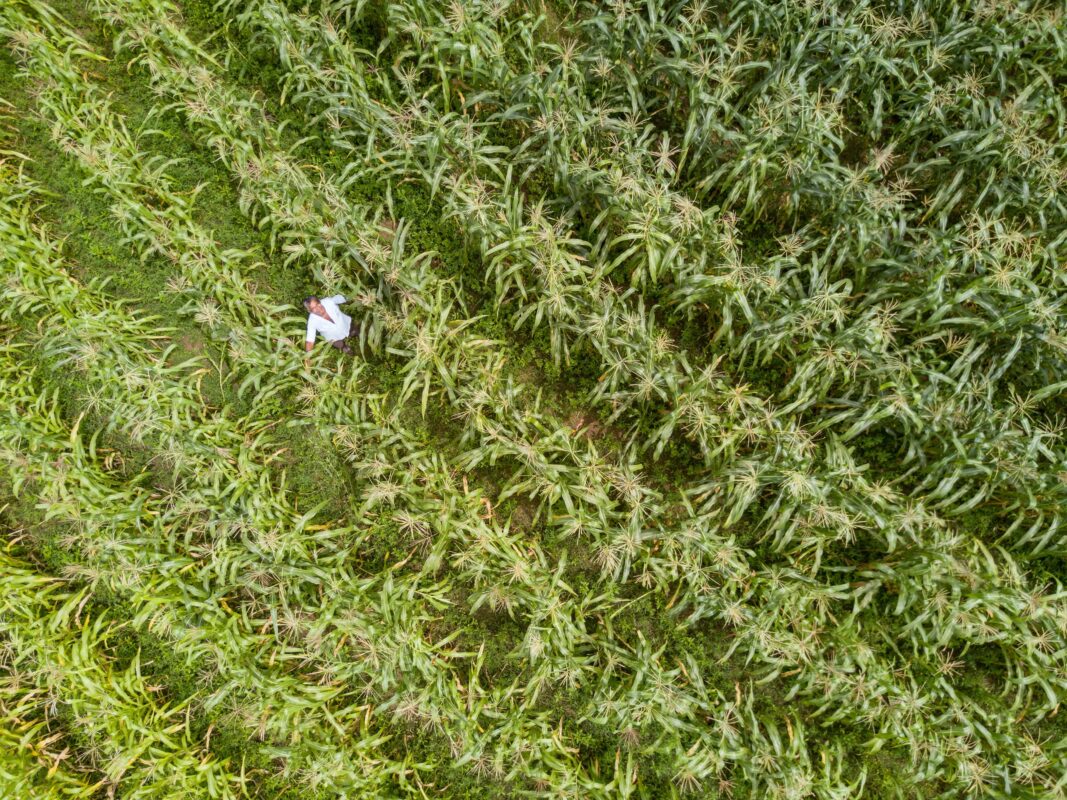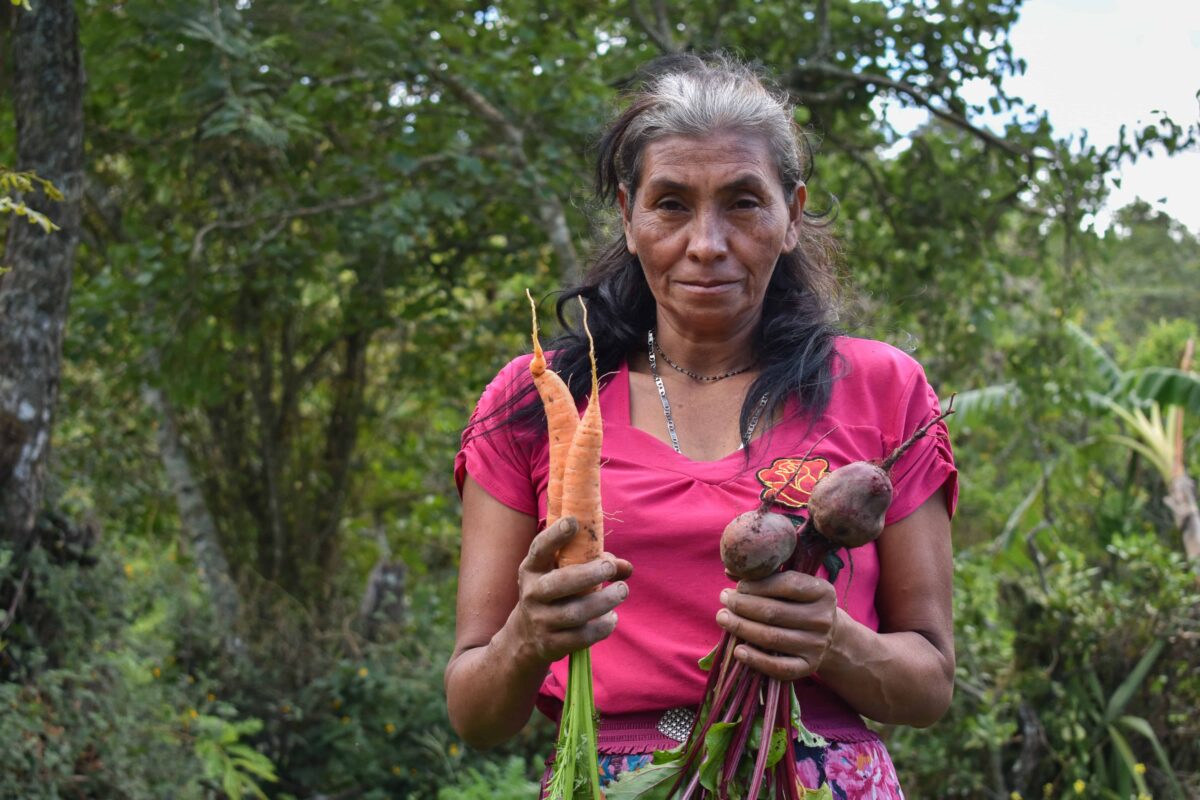
Mulheres rurais em Honduras são frequentemente um pilar invisível em suas próprias casas, Apoiar os meios de subsistência de suas famílias sem reconhecimento ou uma voz nos processos de tomada de decisão. Parte do meu trabalho é apoiar o aumento do envolvimento das mulheres em atividades agrícolas, que pode produzir uma série de benefícios para as comunidades.
Mas minha experiência me mostrou que não podemos esperar que uma mulher seja capacitada quando ela não tem senso de autoestima para extrair de. Temos que trabalhar de dentro para fora.
Mulheres rurais em uma desvantagem grave
Sobre Um quarto dos Honduras ' 2 milhões de mulheres rurais trabalho em agricultura. Mas Honduras tem uma das maiores taxas de desigualdade no acesso e controle de recursos produtivos como a terra, ferramentas, propriedade e crédito. Os homens são vistos como os donos desses recursos e como no controle dos processos agrícolas.
As mulheres na zona rural de Honduras devem cuidar do trabalho doméstico, Prepare comida e crie filhos. Mas eles também são uma parte crucial - e muitas vezes não reconhecida - da agricultura e da geração de renda. Eles ajudam a tender pequenos jardins, Selecione sementes, levantar gado, transporte de água, colheita e processo culturas. As mulheres também estão frequentemente envolvidas na venda de mercadorias em mercados informais.
Apesar de suas contribuições para os meios de subsistência de suas famílias, As mulheres são excluídas da tomada de decisões sobre o que produzir, os detalhes da colheita ou como gastar dinheiro. Eles raramente recebem qualquer renda.
Conforme declarado pelo UN., Lidar com essas desigualdades de gênero na agricultura é central para aumentar a produção agrícola, Reduzir a desnutrição e melhorar os meios de subsistência.
Reconhecendo a dinâmica do poder nas casas de produtores agrícolas e pequenos agricultores, o Aliança do Corredor Seco (ACS)-PROSASUL coloca uma lente sensível ao gênero em todos os componentes do projeto, do planejamento e implementação ao monitoramento e avaliação.
O programa pretende alcançar 6,000 Famílias pobres e extremas pobres na região do corredor seco de clima-fragilez do sul de Honduras, Reduza a desnutrição crônica da infância e aumente a renda dos pequenos agricultores. Para alcançar esses objetivos, Também devemos abordar a falta de valor colocada nos papéis tradicionais das mulheres e apoiar as mulheres como principais contribuintes para as economias locais.
O efeito cascata: mulheres ajudando mulheres
No nível da família e da comunidade, Construímos a conscientização sobre o papel das mulheres no processo de produção, a economia local e na tomada de decisão. Através de oficinas projetadas para ensinar a tomada conjunta de decisões domésticas, O ACS-PROSASUR ajuda as mulheres a estabelecer co-responsabilidade com seus parceiros para que tenham mais tempo, Mobilidade e espaço para realizar atividades agrícolas sem serem sobrecarregadas por outras tarefas diárias.
Vimos que as mulheres treinadas em nossos programas compartilham seus conhecimentos com suas filhas, vizinhos e amigos, multiplicando assim a mensagem em suas comunidades. As mulheres se tornam os melhores motivadores para outras mulheres que procuram mudar a dinâmica da desigualdade de gênero na agricultura.
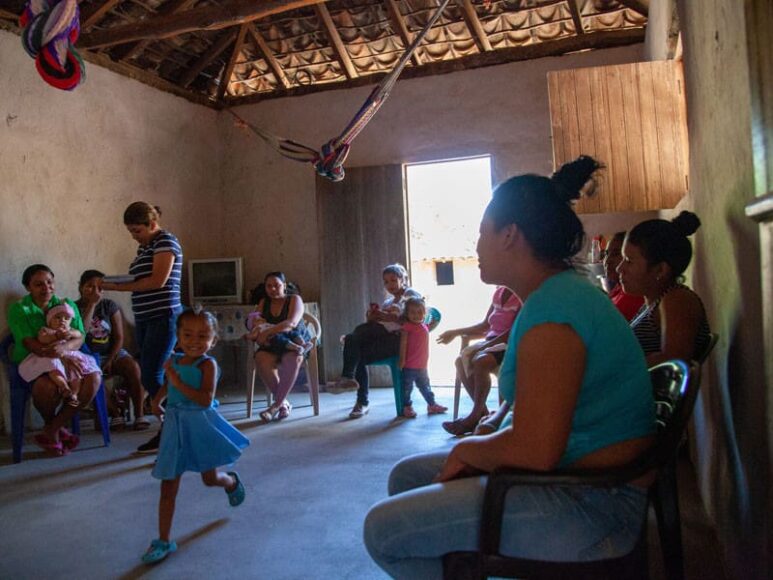
Apoiando as mulheres como chefes de famílias
ACS-PROSASUR também se concentra nas mulheres como chefes de famílias, Construindo sua capacidade e propriedade sobre a geração de renda e a produção agrícola e a mudança de percepções das mulheres como líderes em comunidades rurais.
Desde o início do projeto, Nós apoiamos 1,100 Mulheres que são cabeças de suas famílias criam planos de segurança e nutrição alimentar para suas casas. Esses planos incluem assistência técnica, Instalação de sistemas de irrigação, e os suprimentos e ferramentas necessários para estabelecer gráficos que produzem grãos básicos e produzem com alto valor nutricional e comercial. O projeto também apoiou mulheres que não possuem suas próprias parcelas, mas têm acesso a terras pertencentes a outro membro da família ou sogro para dar-lhes autonomia na produção.
Planos de negócios agrícolas foram criados para 1,750 casas, 35 por cento deles com mulheres como chefes de família. Esses planos ajudaram a estabelecer 350 hectares de irrigação.
De forma similar, Desenvolvemos planos de negócios não agrícolas para famílias que não têm acesso à terra. Mais do que 250 Casas participaram, e 50 Porcentagem deles é liderada por mulheres envolvidas na produção e em microempresas que quebram com papéis tradicionais.
Mudando a narrativa
No meu 10 anos trabalhando com mulheres rurais, Vi como fatores como autoestima e autonomia e questões como a violência doméstica se alimentam de desigualdades sociais e econômicas. É difícil pedir a uma mulher que seja uma líder em sua comunidade quando sua voz estiver ofuscada em casa.
Mas dar às mulheres e suas ferramentas para melhorar seus meios de subsistência podem mudar a narrativa em torno do papel das mulheres na sociedade e levar a famílias e comunidades mais saudáveis. Quando o senso de propósito de uma mulher desperta, Começamos a ver mudanças reais.
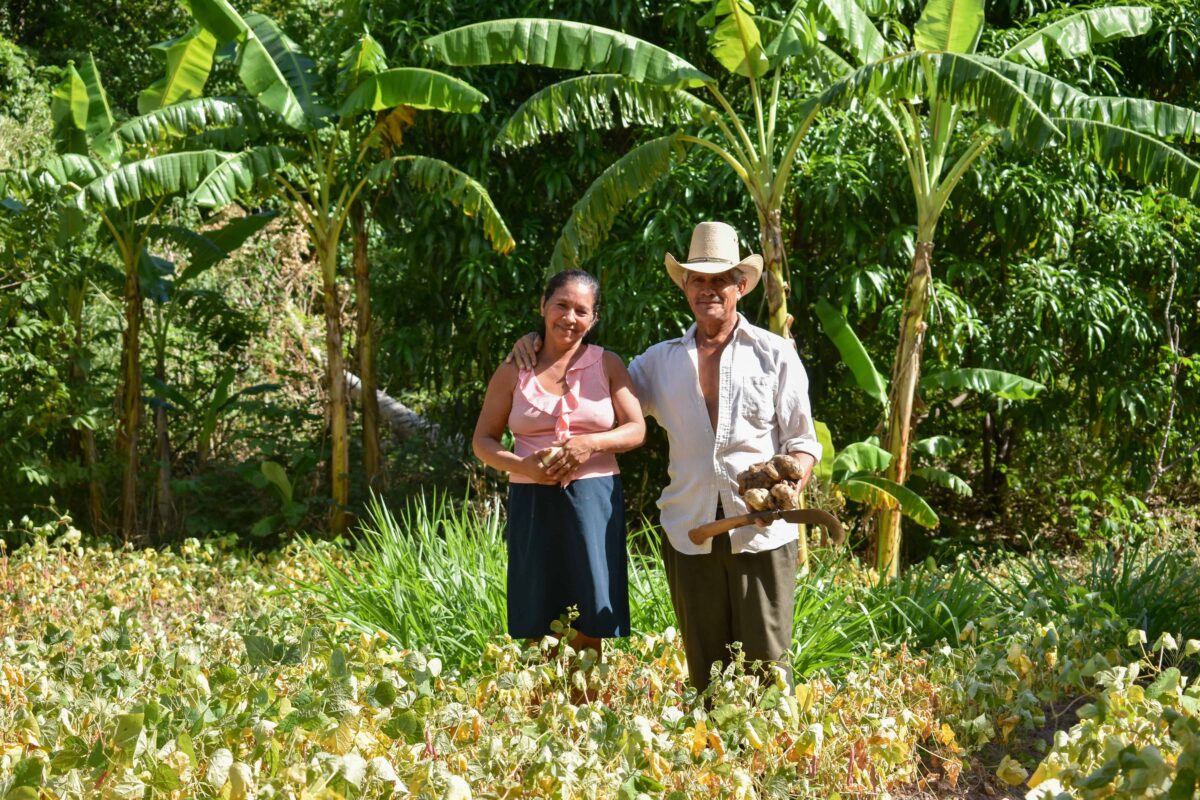
Yajaira Hernández é o consultor de gênero do Projeto Dry Corredor Alliance em Honduras.
